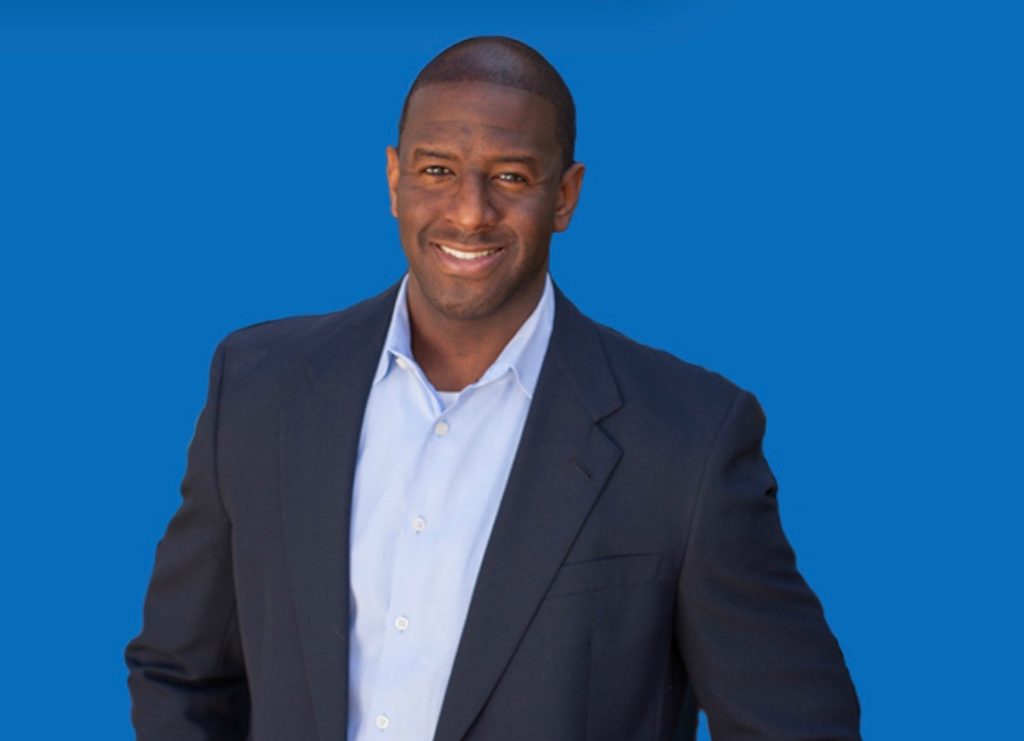
Election Day in Florida: Vote!
MIAMI – Tuesday, Aug. 28, is Election Day in Florida; a primary that will decide who Democrats and Republicans choose to represent them in the November general elections. Florida will soon choose a new governor; and there might end up being a new U.S. senator. Other elected positions like members of the House of Representatives, state legislators, school board members, etc. are also up for grabs in November.
Who decide the winners? You do, if you vote. And it’s time for progressives in Florida to cast ballots for candidates who stand for better schools, better healthcare, and higher wages for workers, just to name a few of the important issues.
There are good candidates out there. You must vote, though.
Andrew Gillum for governor

Running for governor on the Democratic side, for example, is Andrew Gillum, the 39-year-old mayor of Tallahassee that was given very little chance of winning not too long ago. But elections are not won early in the campaign, and if you’re going to peak, the best time to do so is on Election Day. It turns out that Gillum’s luck may be turning. As reported by his hometown newspaper, the Tallahassee Democrat, “back-to-back polls this month indicated his support has more than doubled and he had quietly turned the Democratic primary into a three-way race.”
Gillum is the only non-millionaire running for governor. He is a young, charismatic man whose campaign has been grassroots — lots of personal contact and listening to the voter. Gillum promises to work to raise the minimum wage so as to eliminate the state’s too many ‘working poor’; he believes, like Bernie Sanders, in universal healthcare; he wants to strengthen public education in Florida; he believes that the Sunshine State should lead the country in producing alternative energy, not lag behind the rest of the country. He’s been endorsed by Senator Sanders who has campaigned with him in Central Florida.
I already early-voted for him.
Think before you vote
You will hear people scoff at the idea that workers in Florida should be paid $15 an hour, for example. The same person who might ridicule the $15 proposal may have a business that has made him or her rich, while his or her workers must apply for food stamps because of low hourly wages being paid by that employer. It is often the type of person who would not think twice about spending one or two thousand dollars for a meal at a fancy steak house in South Beach with other very rich friends… And it is money he or she is able to spend because of the work done by those same persons who need food stamps to put food on the table for their children.
Think about this before you vote.
Here’s another one: I’ve heard more than one Democrat running for governor (and ALL the Republicans), and a Democrat running to replace Ileana Ros-Lehtinen in the U.S. Congress, who tell us that the Bernie Sanders proposed idea of Medicare-for-all is impossible. They’ll say, “They’d like to improve the healthcare system. To tweak it. To work with what we have.” They insist that universal healthcare is impossible: “Where will we find the money to finance this?”
Hogwash!
What they won’t tell you is that, just like the Republicans, they’re also in bed with persons making money off the misery of those who have NO healthcare.
In July of this year a study funded by the Koch Brothers — yes, the same brothers who have invested billions of dollars in a decades-long campaign to turn public opinion against necessary reforms, such as the establishment of a single-payer healthcare system in the United States — found that a single-payer Medicare for All system would reduce the amount the U.S. spends on health care by more than $2 trillion.
A Think Progress article informs us that “research by the Mercatus Center at George Mason University — a libertarian think tank backed by the Koch brothers — projected that the Medicare for All plan championed by Sen. Bernie Sanders (I-VT) would cost the government $32.6 trillion over 10 years.”
The study found that “Medicare for All would result in significant savings for the country because of lower prescription drug costs, saving $846 billion over the next decade. Streamlined administrative costs under the plan would save another $1.6 trillion, the researchers at the Mercatus Center found.”
It stated that “over the next decade, the U.S. is projected to spend more than $33 trillion, plus inflation, on health care services without any changes to our current system — significantly more than Mercatus’s estimated $32.6 trillion cost to the federal government over the next ten years.”
Currently in the U.S. more than 15 percent of adults between the ages of 19 and 64 have no insurance. And 25 percent of lower-income families are uninsured. And still we have politicians, some running for office in Florida next week, who refuse to embrace a program that would save the country money and create a tent big enough to insure every single American.
Have you ever wondered why?
Like I said, I’ve already voted. Have you? If you have not, I urge you to study the candidates — there’s plenty of information out there — and get to know the issues.
Election Day is Tuesday, Aug. 28, in Florida. If you have not early-voted, or voted by mail, there’s no excuse for you not to cast a ballot next week.
Those who don’t, by the way, have no right to complain later.

